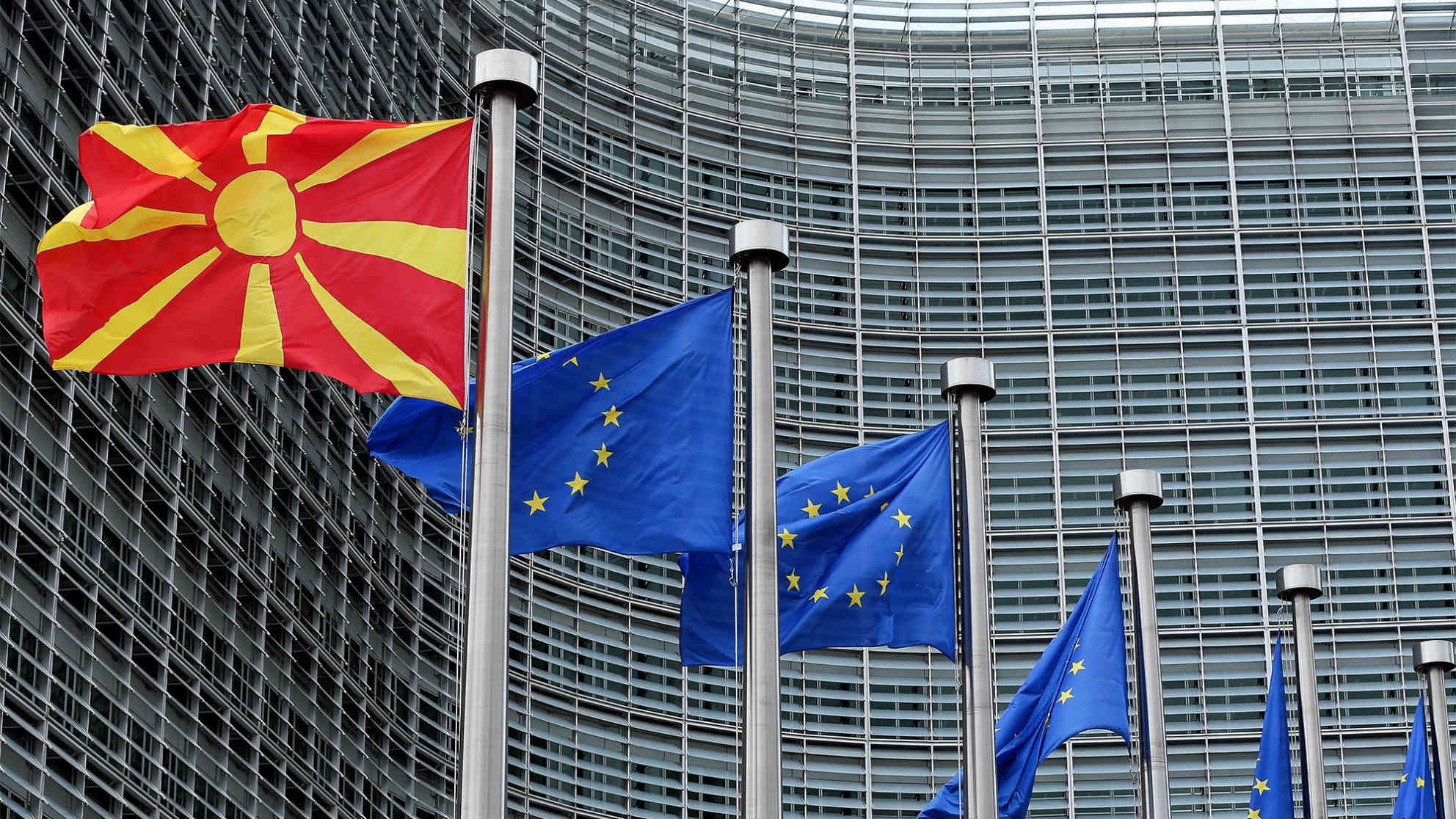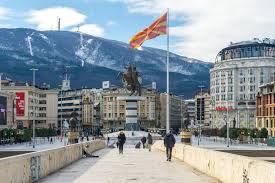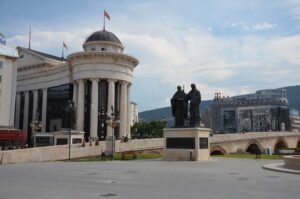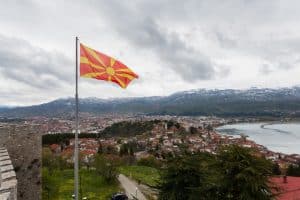On Friday 18 October, leaders of the 28 EU states debated for hours whether Albania and North Macedonia would obtain a date for the start of the EU accession talks. Senior EU officials were furious at France for successfully leading the opposition in the European Council against further steps in EU integration of the two Balkan countries. Jean-Claude Juncker, president of the European Commission, called it a major mistake: “If we want to be respected, we have to keep our promises.” EU council President Donald Tusk agreed with Juncker, saying that it’s a mistake which made him feel really embarrassed. The outcome of the summit is a major setback for both North Macedonia and Albania who introduced major reforms to reach the demands of the EU. North Macedonia’s Prime Minister Zoran Zaev (Social Democratic Unions, SDSM) said that the two Balkan countries were the victim of the EU’s historical mistake. Following the decision by EU leader to postpone the talks, Zaev called snap elections. Experts fear that the country could fall back to nationalism and repression if the opposition secures a victory at the poll.
Division among EU members
Potential new members must adopt to EU levels in economic policy, human rights, anti-corruption measures and rule of law before they can start EU accession talks. The European Commission recommended, once again, in May that Albania and North Macedonia had made enough progress to start the process.
However, all EU member states have to agree on accepting new countries in the accession trajectory, which didn’t happen on the 18 of October at the EU-summit. The opposition against the talks was led by France, with the Netherlands and Denmark following France in their stance on Albania. The Netherlands and Denmark are worried about the rule of law in Albania, while they suggested North Macedonia could open talks with the EU after it passed a law safeguarding the future of an independent public prosecutor. France was the only EU member state opposed to opening talks with North Macedonia. Macron defended his decision by stating that the accession process itself had to be reformed before new countries could join the accession trajectory. Some argue that this last-minute decision to reform the enlargement process was merely a ruse to delay the decision on the talks.
Progress made by Albania and North Macedonia
Albania and North Macedonia went through extensive judicial reforms in order to qualify for the accession trajectory. For example, Albania started an anti- corruption vetting process of all its 800 judges, which has resulted in 60% of them not returning to their position. This has left some concerns over the ability of the judicial system to carry out its job. North Macedonia has made the most progress on judicial reforms and its accession is supported by critical countries like Denmark and the Netherlands. The country has even ended its dispute with Greece concerning its name, changing it from Macedonia to North Macedonia. Meanwhile North Macedonia is set to become a NATO member later this year or early in 2020. The Balkan countries have sought support among each other, in order to increase their changes of accession into the EU. The prime minister of Albania, North Macedonia and Serbia recently signed a declaration which aimed at creating a so called “Balkan Schengen”, which is based on the four European Union freedoms- flow of goods, capital, services and people. Albania’s prime minister, Edi Rama (Socialist Party, SPA), said that the project will serve the European future of the Balkan as we as creating investment opportunities in the Balkans.
Reactions from Albania and North Macedonia
On the eve of the EU summit, North Macedonian Prime Minister Zoran Zaev warned Brussel that China and Russia could “fill the vacuum” left by the EU in case it delayed the opening of accession talks. Zaev called for snap elections following the decision to postpone the accession talks. Subsequently North Macedonia’s party leaders came together on Sunday 20 November in a meeting headed by President Stevo Pendarovski. At the meeting, the party leaders decided to hold elections on the 12th of April, eight months ahead of schedule. “We have accomplished a great dream by becoming a NATO member. We will accomplish another great dream and the Macedonian dream is Europe. We can bring European values into this country and when the EU is ready; let them open the negotiation chapters,” Zaev said.
Albania’s prime minister, Edi Rama, said the decision was linked to the disagreement among EU members on its enlargement process. He vowed to continue domestic reforms “not because Paris, Berlin, Brussels or all of them are asking for it, but because it is needed to turn our country into a European, functional one”.
Future
Head of the European Parliament Foreign Affairs Committee, David McAllister, has warned that postponing the accession talks may open the door for other actors in the Balkan region; “The EU risks giving up its leverage and signaling that other actors are free to pursue their agenda in the region”. Several heads of state have expressed their disappointment. Italian Prime Minister Giuseppe Conte said he will try to find a compromise in the upcoming General Affairs Council in November. Belgian Prime Minister Charles Michel also vowed not to let the matter drop, saying: “We’ll see how to get back to this debate later.
Even though a large part of EU members deem the two countries ready to engage in entry talks, without the approval of France no talks will take place. Something which is sparking anger among the leaders in Albania and North Macedonia, who are open about the significant impact the denial by the EU has on their countries. With Russian and Chinese investment in the region rising, the decision by the EU could prove to be a turning point in the Balkan European future. North Macedonian snap elections are expected to be centered around the geopolitical future of the Former Yugoslav republic. Continuing on a path leading to the EU, which hasn’t kept its promises, or focus on a new strategic ally.
Sources: BalkanInsight BalkanInsight2 TheGuardian BBC Europeanwesternbalkan



